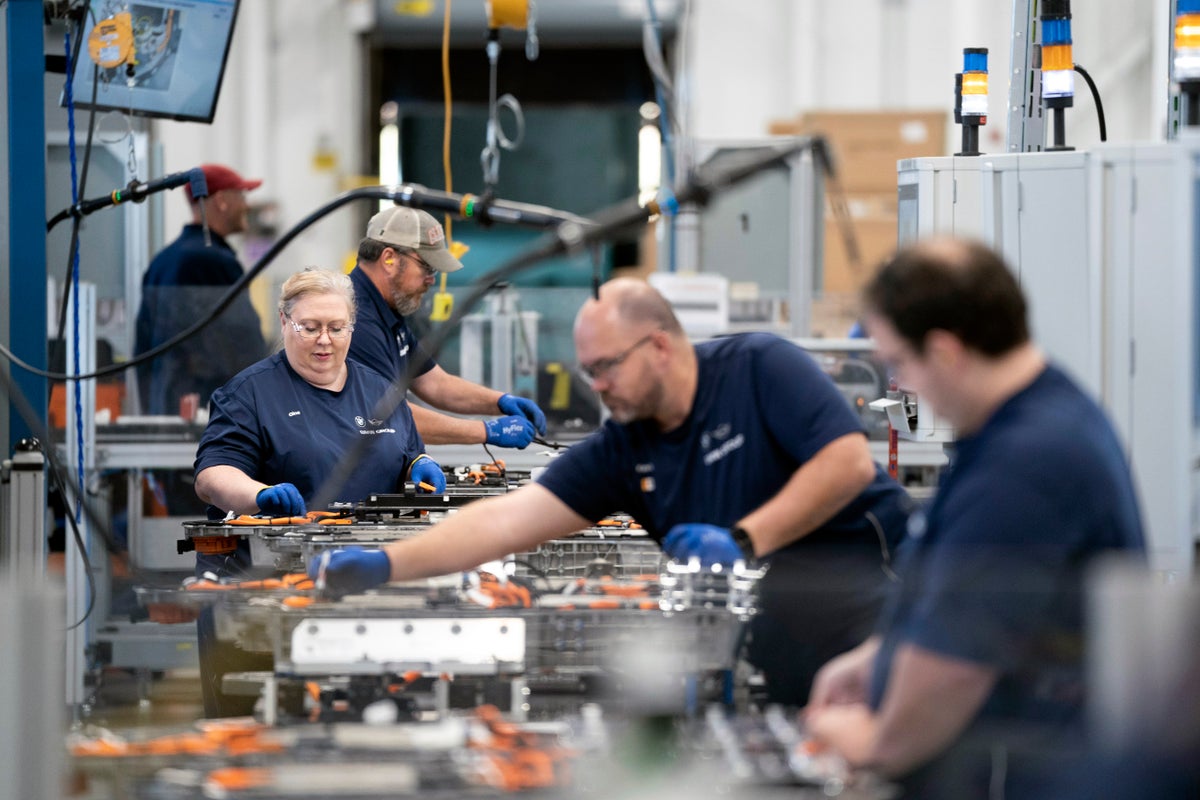
BMW will invest $1 billion in its sprawling factory near Spartanburg, South Carolina, to start building electric vehicles and an additional $700 million to build a electric-battery plant nearby.
The German automaker’s announcement Wednesday reflects its commitment to transitioning to electric-vehicle production in North America, in line with similarly ambitious plans by other major automakers.
The investment in the 7 million-square-foot campus in the foothills of the Blue Ridge Mountains could add an unspecified number of jobs to the more than 11,000 people working there. The battery plant in nearby Woodruff will employ 300.
In addition, BMW said it has signed a deal with Envision AESC of Japan to supply battery cells for a new class of at least six electric SUVs that will be built at the huge plant in Greer, South Carolina, by 2030.
Envision will build a new factory at an unspecified site in South Carolina, although the companies wouldn't say how many people will be hired. But the number of jobs is likely to be large — battery plants being built by other companies will employ anywhere from 1,100 to 2,200 people.
Cells from the Envision factory will be shipped to the 1-million-square-foot plant in Woodruff, where they will be assembled into battery packs for the electric SUVs built at the larger plant.
“The expansion of electric vehicle production in combination with a local battery cell factory will lead to the creation of new supply chains, new networks for sub-suppliers and new jobs throughout the entire region,” BMW said in a statement.
The new cells will have a battery chemistry that increases the amount of energy they can store, the company said.
Envision already has a U.S. factory in Smyrna, Tennessee, near a Nissan assembly plant, and it's building a plant in Kentucky.
The BMW plant already builds lithium-ion battery modules for two plug-in gas-electric hybrid SUVs that are built at the site. The Spartanburg site opened 30 years ago, and now builds 11 SUV models. BMW says the plant has made it the largest automotive exporter in the U.S. based on vehicle value.
BMW’s announcement follows several waves of battery and electric vehicle assembly plant announcements in the U.S. and North America as automakers try to establish a domestic supply chain for the next generation of vehicle propulsion. Honda, Ford, General Motors, Toyota, Hyundai-Kia, Stellantis and VinFast of Vietnam have announced plans for 11 U.S. battery plants, many with joint venture companies.
In addition, Ford, GM, Hyundai-Kia and VinFast have announced plans to build new electric vehicle assembly plants in the U.S., or to retool older plants to handle EVs.
A new U.S. law, the Inflation Reduction Act, gives them even more incentive to build batteries in North America. It includes manufacturing tax credits, and a tax credit of up to $7,500 that could be used to defray the cost of purchasing an electric vehicle. But to qualify for the full credit, the electric vehicle must contain a battery built in North America with 40% of the metals mined or recycled on the continent.
Electric vehicle sales are expected to rise dramatically between now and 2030 in the U.S. and globally, but even at the start of the next decade, they will be just over one-third of U.S. new vehicle sales. The LMC Automotive consulting firm expects EVs to be 5.6% of U.S. sales this year, rising to 13.5% by 2025 and 36.4% in 2030.







